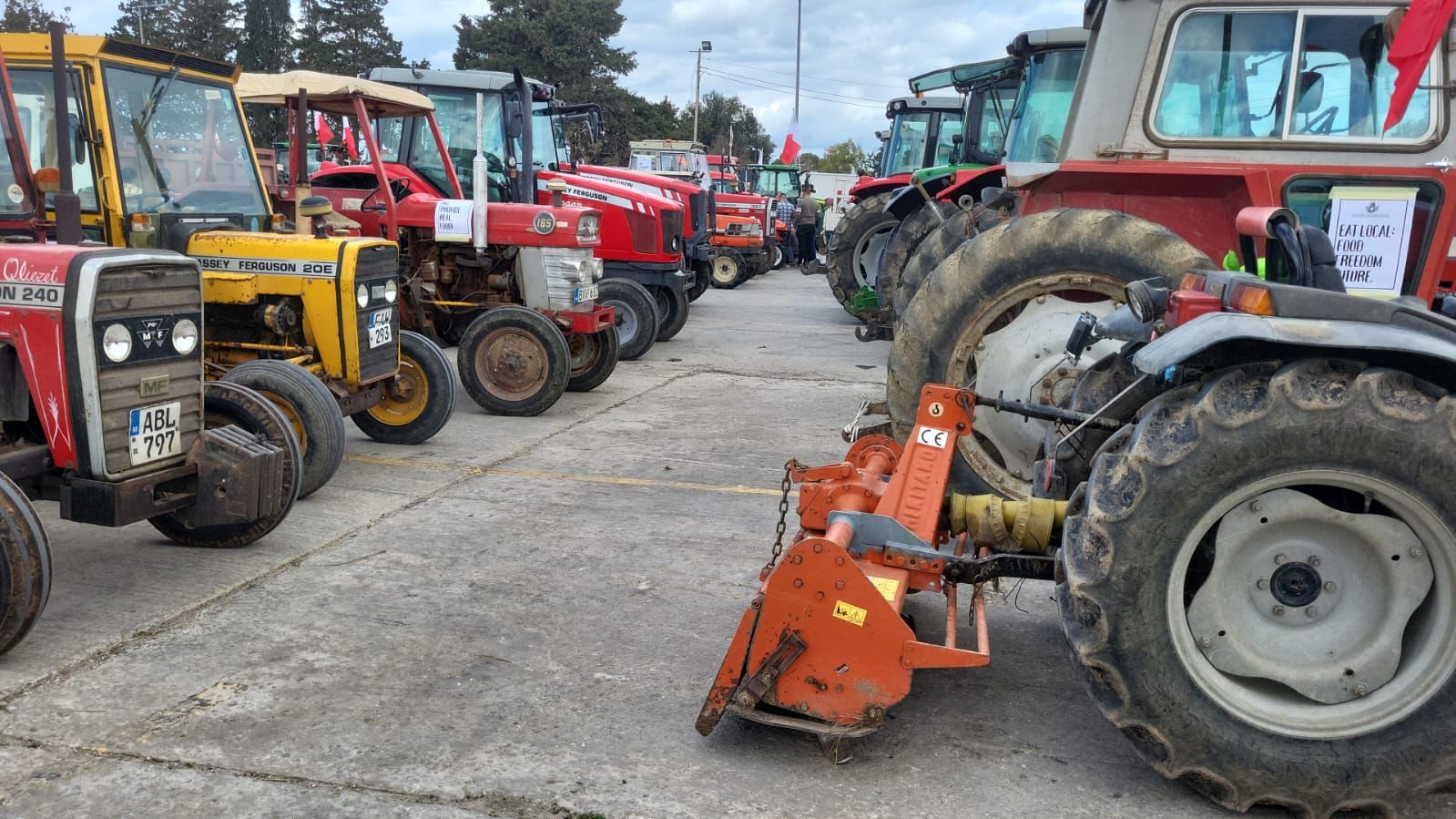Maltese farmers are joining those in Europe in a major protest against rising costs, cheap imports, and a slew of environmental regulations they say are threatening their livelihood.
The precise complaints vary between and even within countries. In Malta, it seems that proposed restrictions on the use of certain synthetic fertilisers and pesticides and a proposal to incentivise leaving some land empty, to encourage the growth of native flora, are major flashpoints.

Meanwhile, a trade deal with the Latin American trade bloc Mercosur (including Brazil, Argentina, Paraguay and Uruguay) is a major concern for those in France, where large protests have led President Emmanuel Macron to inform the European Commission that the long-awaited free trade agreement no longer enjoys French support.
The trade deal would have opened the EU market to agricultural products from South America, which are typically subject to less stringent environmental standards.
Some of the discontent amounts to a delayed reaction to the effects of the EU’s response to Russia’s invasion of Ukraine, due to which many farmers saw their inputs – like energy, fertiliser and transport – increase in cost.
At the same time, many countries in central and eastern Europe have seen an influx of cheap agricultural imports from Ukraine, with farmers in Lithuania, Poland and Romania identifying the negative impact of these imports on their revenues.
Right now in #Brussels – European farmers up in arms. Their same issues apply in #Malta compounded with a dysfunctional local market where 75% of our food is imported!! pic.twitter.com/CNIyyRA0dC
— Peter Agius (@peteragius_eu) February 1, 2024
In Germany, which is on the brink of recession as the European Central Bank’s efforts to bring inflation under control by increasing the cost of borrowing start to bite, the Government has floated plans to phase out subsidies on diesel fuel for the agricultural sector. German farmers, already facing pressure from all sides, have not taken kindly to this proposal.
An investigation by Politico showed that the prices farmers are obtaining for their agricultural produce have fallen across the EU, with Greece and Cyprus – where farmers have benefitted from outsized demand for olive oil – being notable outliers. Other south European countries like Portugal, Spain, Malta, and a much lesser extent Italy have also seen produce prices rise – although farmers in this countries suffer from the same increase in input prices as those in other countries.

Among the main points of contention are environmental regulations, even as farmers feel the pinch of extreme weather events, like the wildfires that destroyed a full fifth of Greece’s entire agricultural production last year. Notwithstanding the impacts of climate change and the degradation of biodiversity, farmers argue that the rapid pace of introduction of new regulatory requirements are simply adding to the complexity of factors they must contend with.
Maltese Protest
Maltese farmers have congregated on Ta’ Qali in prepration for a drive towards Valletta. Tractors and agricultural machinery have lined up on the site of the farmers’ market.
At least one participant has made an appeal to others employed in the farming and fishing sectors, as well as those who are enthusiasts of hunting and trapping, to join in the protest, warning: “Today it is us, tomorrow it’s you.”
@clintcalleja2023 appell ta malajr! ejjew il-protesta tal-bdiewa. ta qali #farmersprotest #maltatiktok #clintcalleja #carloschircop ♬ original sound – clintcalleja2023
The tractors can be seen with signs like: “Farmers gone? Eat your money!” and “No farmer no food.”

Coordinatd by Għaqda Bdiewa Attivi, the local protest is calling for changes to state aid rules to allow the Government to “intervene and assist farmers financially when the needs (as determined by farmers) arise to make farms more competitive.”
It pointed out that EU state aid rules are “unfair and unjust” when considering that farmers in countries outside the EU get substantial financial assistance from their governments.
Maltese farmers are also protesting against the “aggressive, quick and ambitious changes” within European legislative frameworks, including the Green Deal, the Biodiversity Strategy, the Regulation on the Sustainable Use of Plant Protection Products, the Nature Restoration Law, and the new provisions in the Common Agricultural Policy.
Updates on the Maltese farmers’ protest to follow.
Featured Image:
Peter Agius
Two years since its birth, Moneybase features on Microsoft’s Customer Stories
Moneybase has now just been featured on Microsoft’s latest Customer Stories
Finance Minister confirms continuity of food and energy subsidies
Spending on food and energy subsidies as a percentage of the GDP will be at 0.7% in 2025
MHRA congratulates Glenn Micallef on EU role, highlights positive impact on Malta’s tourism and cultural sectors
The lobby group emphasised that Malta’s cultural assets and sports scene are key factors in attracting visitors and fostering economic ...






